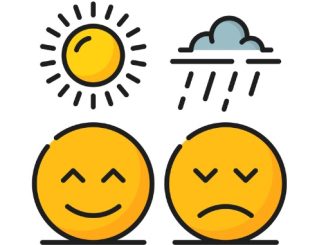
Dr Paul Lambden gives his top tips on how to avoid food poisoning, recognise the symptoms and how to treat it if you’re unlucky enough to get it this barbecue season
The lovely weather is wonderful. What could be nicer than a barbecue; great company, music, dancing, happy children and food – chicken, sausages, prawns with that smoky flavour! But beware of that imperfectly cooked food, beautifully hot outside but raw in the middle, or placed on an edge away from the heat. If the food is not cooked throughout, bacteria lurking in it can multiply, unhindered, and food poisoning results.
The characteristic features of food poisoning are diarrhoea and vomiting. They may be accompanied by fever, abdominal pain and cramps, and the loss of fluid from the gut may lead to dehydration. The infection may result in blood in the vomit or the stools, and the symptoms may extend beyond the gut to cause headache, weakness, lassitude, tingling sensations and numbness.
The diarrhoea and sickness may last from a few hours to several days. Most settle quite quickly but, in a small proportion of people, they go on to become more ill, developing kidney or joint problems and sometimes seizures.
Food poisoning organisms have names which are well-known to many people:
- Salmonella
- Norovirus
- Campylobacter
- Clostridium
- Staphylococcus aureus
- Listeria monocytogenes
- Toxoplasma
- Rotavirus.
It is generally thought these that cause the complications of food poisoning; in fact, viral infections cause more cases of food poisoning but are very much less likely to make people really ill such that they need hospitalisation.
Toxins can also cause food poisoning. Some are produced by the bacteria on or in food; others may be produced by plants, animals or fish which are ingested. Parasites can also cause food poisoning but these are rare in the UK. They include amoebae and tapeworm (such as taenia solium).
Causes
So what causes food poisoning? The usual suspects include:
- poultry;
- meats;
- eggs;
- unwashed fruit and vegetables;
- cheese.
There is usually a history of eating imperfectly cooked or unwashed food or drinking contaminated water. The person may have been abroad eating unwashed salads, or having ice cubes in the drinks made from infected water. The feeling of being unwell and the abdominal pain is followed by the vomiting and the diarrhoea – it may result in a torrid few hours until the worst is over! The sufferer may become dehyrated and a headache, and feeling desperately weak, are common accompaniments.
Mostly the symptoms are self-limiting and there is no need to seek medical assistance for most viral or bacterial infections. The important principal of treatment is to avoid the dehydration by consuming plentiful clear fluids, which are electrolyte replacement with water, such as Diorylate or Rehidrat. Some people are reluctant to drink fluids whilst vomiting but repeated sips can usually replace more than is lost, and water is one of the few things that is absorbed in the stomach.
It is normally dehydration that necessitates a medical professional intervention; in such circumstances fluid may need to be replaced intravenously. Signs which might ring alarm bells are:
- diarrhoea more than three days;
- inability to keep down any fluids;
- repeated bloody diarrhoea;
- extreme abdominal pain;
- severe dehydration.
Even when the diarrhoea and sickness have stopped, it may take several days for fluid and electrolyte balance to be fully restored and for the individual to feel well again.
Avoidance!!
Is it possible to avoid food poisoning? Well, mostly it is if simple rules are followed – especially at those barbecues!
- Wash your hands, clean knives, chopping boards and utensils.
- Rinse fruit and vegetables. You don’t know whose hands they have been through!
- Be careful of cross-contamination; keep raw meat, poultry and seafood away from cooked foods.
- Do not leave raw food out in the air too long where bacteria can multiply, or insects transmit germs, or even lay eggs.
- Make sure food is completely cooked. Just because it looks ‘about right’ does not mean it is ‘done’. When possible, use a meat thermometer.
- Protect previously cooked foods in airtight containers.
- Keep frozen foods refrigerated at 3°C or in the freezer at -20°C.
- Ensure foods are defrosted thoroughly before cooking.
- If you go abroad, particularly to parts of Africa, Asia and South America:
- don’t put ice in drinks;
- Have bottled water only
- wash all fruit and vegetables;
- be really careful where you eat.
Most people will have a rapid recovery and no long-lasting sequelae from food poisoning; the only people likely to suffer serious consequences are those who are weakened with other illnesses, the immunocompromised, pregnant women, the elderly and infants and the young. Sometimes someone who contracts a very severe or heavy infection may become very ill but, in this day and age in the UK, deaths are very rare, though diarrhoea remains a major killer in some parts of Africa. Keep an eye on the person in charge of the barbecue to ensure s/he is cooking the meat and poultry properly. Don’t let any mixing of cooked and uncooked food occur.
Whoever said ‘the bottom dropped out of his world’ has faded into obscurity. Eat contaminated food and it may be a case of ‘the world dropping out of your bottom!’
Take care.


Be the first to comment